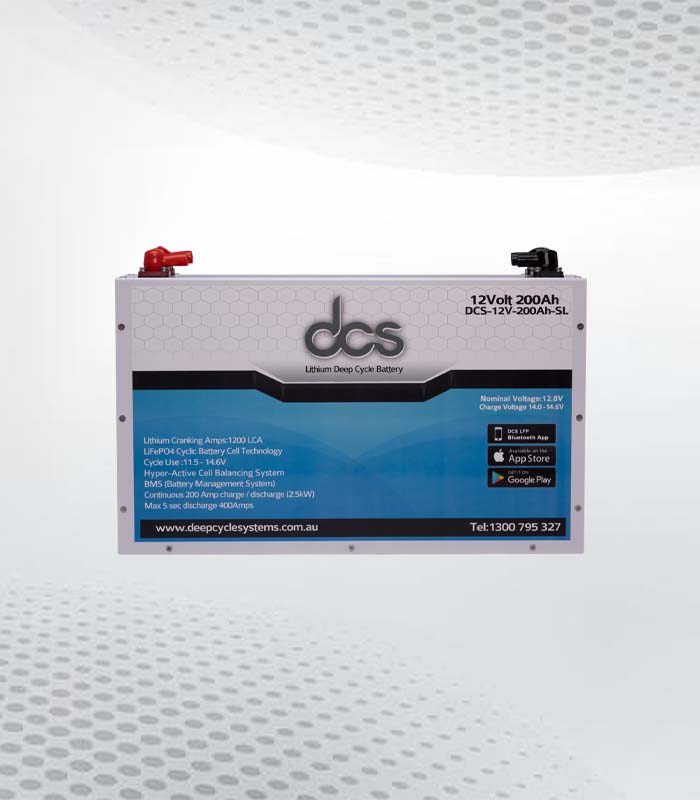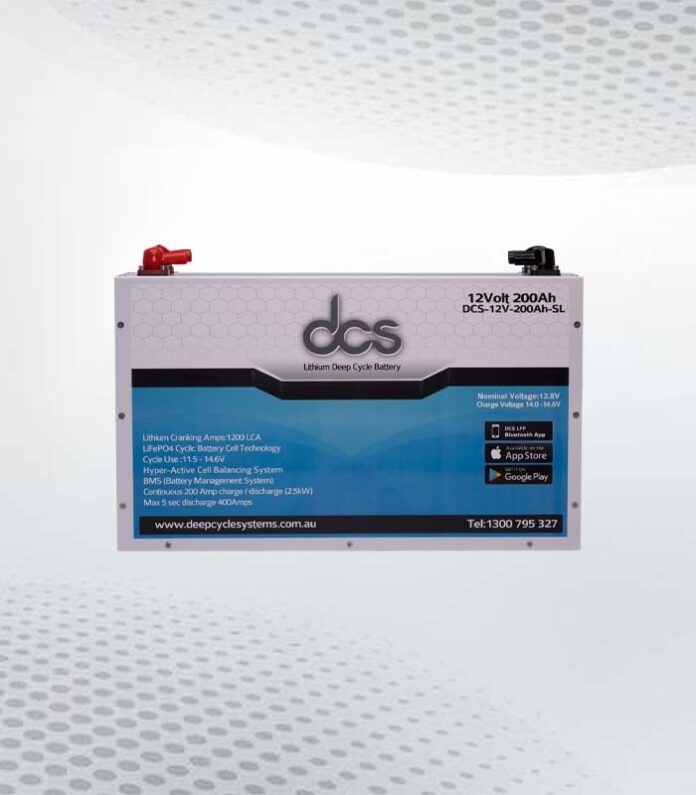Having a reliable and long-lasting battery is essential when powering your RV, boat, or off-grid system. However, with the variety of options available, it can be overwhelming to determine which type of battery is best for your specific needs. This blog post will be comparing two popular choices: AGM and lithium batteries, specifically in a 100 Amp Hour Battery capacity. It will break down the differences between these two types of batteries and help you determine which one is the right fit for your power needs.
Understanding Battery Basics: What Does 100 Amp Hour Mean?
When it comes to batteries, understanding the basics is crucial to make an informed decision. One important factor to consider is the amp hour rating, which indicates the capacity of the battery to provide a certain amount of current over a specified period. In the case of a 100 amp-hour battery, it means that the battery can deliver 100 amps of current for one hour, or 1 amp of current for 100 hours.
This rating determines how long a battery can power your RV, boat, or off-grid system before recharging. The higher the amp hour rating, the longer the battery can last. So, a 100 amp-hour battery is considered to have a good capacity for powering various applications.
It’s important to note that the actual runtime of the battery may vary depending on factors such as the load being powered, the efficiency of the equipment, and the overall health of the battery. However, the 100 amp hour rating provides a general guideline for comparing different battery options.
Exploring The Benefits Of A 100 Amp Battery
When it comes to the benefits of a 100 Amp Battery, there are several key advantages to consider. First and foremost, a 100-amp battery offers a good amount of power capacity, making it suitable for various applications. Whether you’re powering your RV, boat, or off-grid system, this battery will provide ample energy to keep your devices running smoothly.
Another benefit of a 100-amp battery is its long lifespan. These batteries are designed to be durable and long-lasting, allowing you to rely on them for extended periods without needing frequent replacements. This saves you money in the long run and ensures that you have a reliable power source whenever you need it.
Furthermore, a 100-amp battery is typically maintenance-free, meaning you don’t have to worry about regularly checking or topping up the water levels. This makes them convenient and hassle-free, especially for those new to using batteries in their RV, boat, or off-grid system. In addition, a 100-amp battery is generally more affordable than higher capacity batteries. This makes it a cost-effective option for those on a budget or looking for a reliable power solution without breaking the bank.
 Exploring The Features Of A 100 Amp Lithium Battery
Exploring The Features Of A 100 Amp Lithium Battery
When exploring the features of a 100 Amp Lithium Battery, several advantages exist. One of the standout features of lithium batteries is their high energy density. This means that they can store a significant amount of energy in a compact size, making them ideal for applications where space is limited, such as in RVs or boats.
Lithium batteries have a low self-discharge rate, meaning they can hold their charge for extended periods without losing power. This is especially beneficial for those who may not use their RV or boat regularly, as they can rely on their lithium battery to maintain its charge when not in use. Another key feature of lithium batteries is their fast charging capabilities.
Compared to other battery types, lithium batteries can be charged much faster, allowing you to spend less time waiting for your battery to recharge and more time enjoying your adventure. Lithium batteries have a longer lifespan than other battery types, meaning they can provide reliable power for a longer period before needing to be replaced. This longevity makes them a cost-effective choice in the long run, as you won’t have to invest in frequent battery replacements.
Comparing The Performance Of A 100 Amp Hour Lithium Ion Battery
When comparing the performance of a 100 Amp Hour Lithium Ion Battery, there are several key factors to consider. One of the main advantages of lithium ion batteries is their high energy density, which means they can store a significant amount of energy in a compact size. This allows for more power to be packed into a smaller battery, making them ideal for applications where space is limited, such as in RVs or boats.
Lithium ion batteries have a low self-discharge rate, meaning they can hold their charge for extended periods without losing power. This is especially beneficial for those who may not use their RV or boat regularly, as they can rely on their lithium ion battery to maintain its charge when not in use.
Another advantage of lithium ion batteries is their fast charging capabilities. Compared to other battery types, lithium ion batteries can be charged at a much faster rate. This means less time waiting for your battery to recharge and more time enjoying your adventure.
Lastly, lithium ion batteries have a longer lifespan than other battery types, meaning they can provide reliable power for a longer period before needing replacement. This longevity makes them a cost-effective choice in the long run, as you won’t have to invest in frequent battery replacements.
Considerations In Pricing: AGM Battery Vs 100 Amp Battery Price
When choosing the right battery for your RV, boat, or off-grid system, the 100 Amp Battery Price is an important consideration. So, let’s take a closer look at the pricing differences between AGM and 100 amp batteries.
AGM batteries, or Absorbent Glass Mat batteries, are popular due to their durability and maintenance-free design. They offer a good balance between performance and cost-effectiveness. In general, AGM batteries tend to be more affordable compared to lithium batteries. This makes them a great option for those on a budget or looking for a reliable power solution without breaking the bank.
On the other hand, 100 amp batteries, whether AGM or lithium, typically have a higher price point than lower capacity batteries. This is due to the larger capacity and higher energy output they provide. However, it’s important to note that the pricing of 100 amp batteries can vary depending on the brand, quality, and additional features.
Tips For Maintaining Your 100 Amp Deep Cycle Battery
To ensure the longevity and optimal performance of your 100 Amp Deep Cycle Battery, there are a few important maintenance tips to remember. First and foremost, regularly checking your battery’s water levels is crucial. Deep cycle batteries, including AGM and lithium, typically have removable caps that allow you to access the cells and check the water levels.
Make sure to use distilled water to top up any low cells. Additionally, it’s important to keep your battery clean and free from dirt, dust, and corrosion. Regularly inspect the terminals and clean them if necessary, using a mixture of baking soda and water.
Lastly, recharging your battery promptly after each use is a good idea to avoid deep discharges. This will help maintain the overall health and capacity of your battery. By following these tips, you can maximize the lifespan and performance of your 100 amp deep-cycle battery and ensure that it continues to provide reliable power for your RV, boat, or off-grid system.
Maximizing The Lifespan Of Your 100 Amp Hour Agm Deep Cycle Battery
To ensure your 100 Amp Hour AGM Deep Cycle Battery lasts as long as possible, there are a few key steps you can take. First, it’s important to properly charge your battery. Avoid overcharging, as this can cause damage and reduce the overall lifespan. Use a charger specifically designed for AGM batteries and follow the manufacturer’s recommendations for charging times and voltage settings.
Regularly maintaining the water levels in your AGM battery is also crucial. Check the water levels every three to six months, or more frequently if you notice any signs of low water levels. Use distilled water to top up any low cells, as tap water can contain minerals that may harm the battery.
Another way to maximize the lifespan of your AGM battery is to avoid deep discharges. Regularly recharge the battery after each use, and avoid draining it below 50% capacity whenever possible. This will help maintain your battery’s overall health and capacity over time. Lastly, keeping your AGM battery clean and free from dirt, dust, and corrosion is important. Regularly inspect the terminals and clean them if necessary using a mixture of baking soda and water.
Choosing The Right 100 Amp Hour Agm Battery For Your Application
When choosing the right 100 Amp Hour AGM Battery for your specific application, there are a few important factors to consider. First and foremost, think about the power needs of your RV, boat, or off-grid system. Consider the types of devices you will be powering and the amount of power they require.
This will help you determine if a 100 amp-hour battery is the right fit for your needs. Next, consider the battery’s physical dimensions and whether it will fit properly in your setup. Measure the available space and compare it to the dimensions of the battery to ensure a proper fit.
Additionally, take into account the durability and lifespan of the battery. Look for AGM batteries that are known for their long-lasting performance and reliability. Finally, consider any additional features that may be important to you, such as built-in safety features or compatibility with your charging system.
FAQs
1. How long will a 100 amp hour battery last?
The lifespan of a 100 amp hour battery depends on several factors, including the load being powered and the battery’s overall health. However, as a general guideline, a 100 amp hour battery can provide one amp of current for approximately 100 hours or 100 amps for one hour.
2. How do I know when my 100 amp hour battery needs to be recharged?
You can use a battery monitor or voltmeter to determine when your 100 amp hour battery needs to be recharged. These tools will accurately read the battery’s voltage and help you determine its state of charge.
3. Can I use a 100 amp hour battery for my off-grid system?
Absolutely! A 100 amp hour battery is a popular choice for off-grid systems, as it provides ample power capacity for running lights, appliances, and other electrical devices.
4. What is the difference between an AGM and lithium 100 amp hour battery?
The main difference between an AGM and lithium 100 amp hour battery is the technology used. AGM batteries are sealed, maintenance-free, and typically more affordable, while lithium batteries offer a higher energy density, faster charging capabilities, and a longer lifespan.
Conclusion
After comparing the features, performance, pricing, and maintenance tips for AGM and lithium 100 amp hour batteries, it’s clear that both options have their advantages and considerations. AGM batteries offer durability, affordability, and ease of use, making them a great choice for those on a budget or new to using batteries. On the other hand, lithium batteries offer high energy density, fast charging capabilities, and a longer lifespan, making them a top choice for those looking for high-performance and long-lasting power solutions.
This Article Was First Published On
AGM Vs Lithium: Which 100 Amp Hour Is Right For Your Needs
| Other Good Articles to Read |
| Cme Blog Spot |
| Blogs 97 |
| Blog Stitution |
| Blogs Unplugged |
| Blogs Cotch Rouge |
| Blog Signatr |
| Blog Sintonias |
| Blog Zilla |
| Consumer Forums |
| Finance Forums |
| G Blogs |
| Too Blog |


